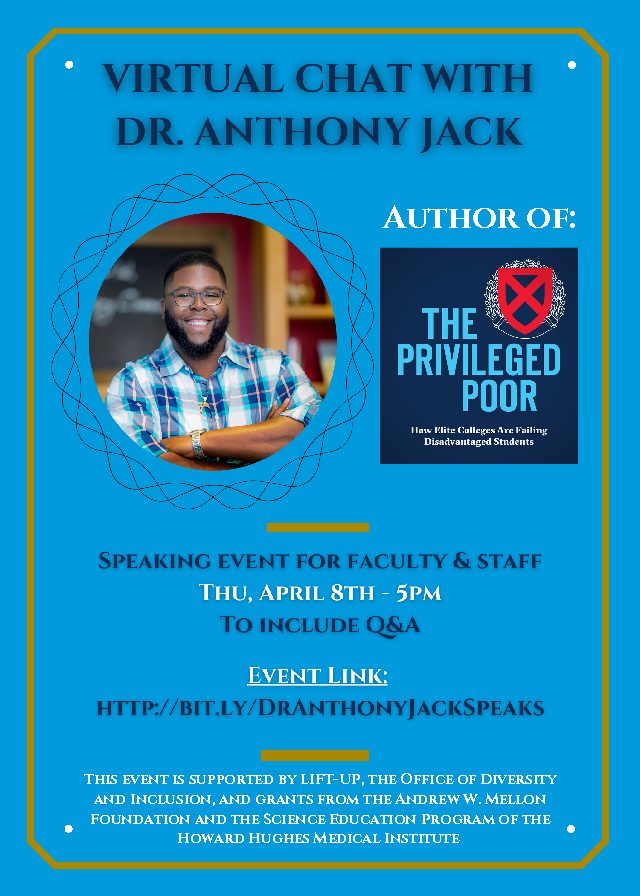Sponsored by the HHMI Grant Management Team and the Inclusive Pedagogy Committee
Dr. Rose Theisen and Jedidiah Rex will lead participants in an exploration of what it means to create a more inclusive syllabus and why it is important to do so. Participants will be provided with a rubric and other syllabus resources. Participants will be given the opportunity for structured peer-to-peer discussion.
The workshop will consist of two 90-minute sessions, 10:30AM-12:00PM and 1:30-3:00PM. In the morning session, workshop participants will review the inclusive syllabus rubric, discuss why inclusive syllabi are important, and summarize and compare elements of an inclusive syllabus. In the afternoon session, workshop participants will analyze syllabi for inclusive elements, and create an evaluation and action plan for making their own syllabus more inclusive.
Rose and Jedidiah will facilitate two sessions. The sessions will be:
- Monday, June 6, held in Zoom
- Monday, June 13, held in Memorial 002
Please RSVP here for the session you prefer by Friday, June 3.
Zoom details for the June 6 session will be shared upon RSVP.
✅ Please note that these sessions will not be recorded. To make the workshop valuable for all, we would like to have at least four participants per session.
In keeping with our support for the Transparency in Learning and Teaching (TILT) initiative, we have outlined the workshop’s Purpose, Tasks, and Criteria below.
Purpose
- To learn about strategies and best practices for inclusive syllabus development.
- To engage with peers on issues of teaching and learning.
- To use tools and resources to examine, evaluate, and revise one’s own syllabus.
Tasks
Participants will:
- review and become familiar with the Inclusive Syllabus Rubric [AM]
- engage in discussion with peers around information shared in the session [AM, PM]
- examine assumptions and fears about creating a more inclusive syllabus [AM, PM]
- collaboratively evaluate a recent or upcoming draft syllabus with the Inclusive Syllabus Rubric [PM]
- create an action plan for making their own syllabus more inclusive [PM]
Criteria
Successful participation means that after the sessions a participant can:
- summarize the parts of an inclusive syllabus as defined in the rubric.
- identify positive examples of inclusive syllabus elements using the rubric.
- explain to a peer why creating an inclusive syllabus is important.
- use what you learned from the workshop when developing your next syllabus and be willing to share what you learned with others in your department or office.
